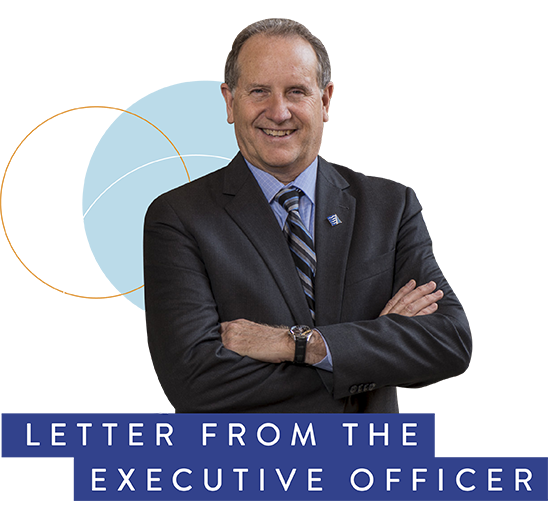
The devasting wildfires this past year have served to highlight the very real effects of climate change on the air we breathe. The Butte County Camp Fire in November created an unprecedented air quality crisis in the Bay Area as we experienced widespread smoke impacts for nearly two weeks and the highest levels of particulate pollution ever recorded.
Climate change impacts are becoming more apparent every year with increasing temperatures, drought and severity of wildfires. The Air District is facing the challenge head on with our Climate Protection and Climate Tech Finance programs that provide incentives to municipalities and industries to adopt the most climate protective technologies. Through development of our Wildfire Air Quality Response Program we seek to implement strategies to better prepare, prevent and respond to future wildfires.
In conjunction with the governor’s Global Climate Action Summit, the Air District sponsored two very successful events – “United Against GHGs” Diesel Free by ’33 and Climate Tech Marketplace.
Our continued rulemaking efforts in the coming period will help to mitigate methane, one of the most climate forcing pollutants. Our incentives program expands infrastructure and accessibility to zero-emission transportation, including funding for a hydrogen-powered ferry, the first of its kind in the nation.
Our compliance and enforcement program continues to aid and enforce air quality regulations to ensure compliance. The Air District oversees more than 10,000 air quality permits throughout the region creating a level playing field for all businesses while ensuring air quality limits are met.
Through persistence and partnerships on the front lines of climate-protective innovation, we hold optimism for a future Bay Area with clean air for all.
 Jack P. BroadbentExecutive Officer
Jack P. BroadbentExecutive Officer
Air Pollution Control Officer